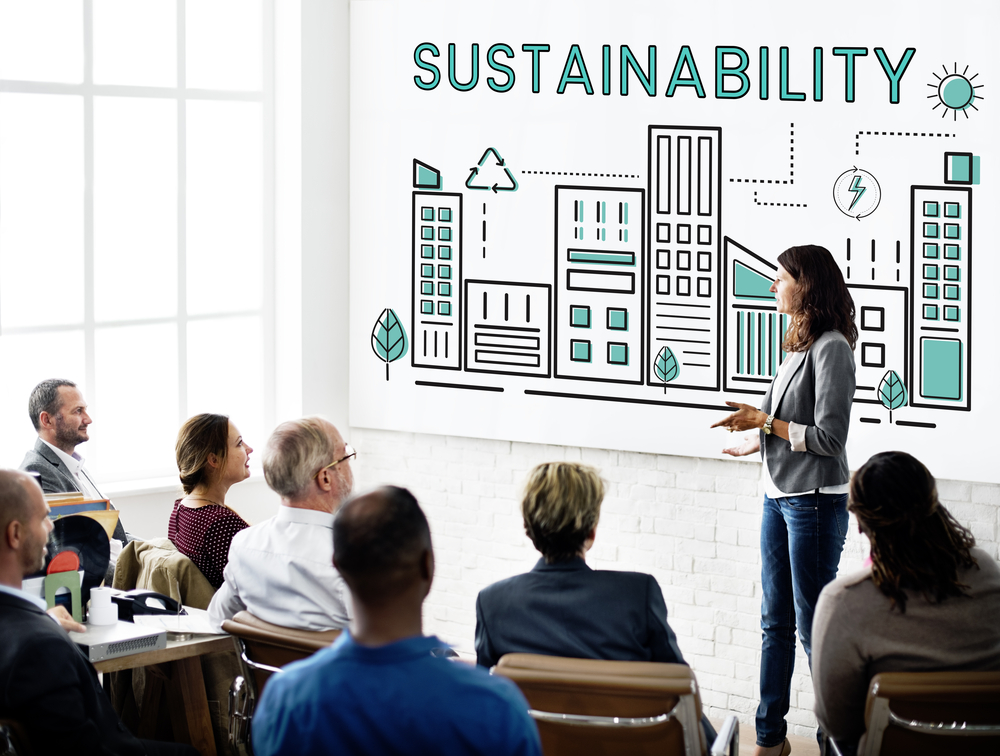The COVID-19 pandemic has altered the traditional idea of a workplace. Lockdowns and other restrictions have led to an increase in remote work or hybrid remote-office environments, especially for office workers. Millions more do not have this option, due to the nature of their jobs — for example, the manufacturing, retail, transportation, and logistics professionals who keep our supply chain moving — and instead they have had to adapt to new health and safety protocols in the workplace setting. These changes have challenged employers to invest more time and resources into their workforces to help them adapt to these evolved circumstances. Organizations are being called upon to create workplaces that help employees, and the overall supply chain, continue to thrive.
These mindset changes are leaving many companies wondering how they can build a sustainable workplace that employees are excited to be a part of — in turn keeping the supply chain moving to meet the increasing demand.
What is a Sustainable Workplace?
According to the Occupational Safety and Health Administration, a sustainable workplace strives to balance the triple bottom line of “people, planet, and profit” to achieve long-term success and viability. Now more than ever, it is important that organizations work to protect the safety, health, and welfare of their employees. Additionally, sustainable workplaces in many cases produce happier, more motivated employees. And as employers continue to navigate labor shortages, creating a workplace that motivates and encourages employees is imperative not only to keep employment numbers up but also to keep filling the growing supply chain demand.
How to Achieve Sustainability
A few ways that organizations can focus on workplace sustainability in the wake of the pandemic include:
- Prioritize work-life balance and a hybrid working model: Throughout the course of the pandemic, many individuals grew to appreciate the flexibility working from home allowed them. While some are eager to get back into a workplace setting, others are not quite ready, and sacrificing the new work-life balance may be a deal-breaker. For supply chain workers whose positions make daily office visits nonessential, such as administrative and technology professionals, consider a long-term remote or hybrid working model to address employee concerns and, in many cases, increase overall productivity.
- Invest in automated systems and technologies: Incorporating automation technologies into an organization can have many benefits. To start, it allows processes to move more efficiently, keeping the supply chain moving and filling demand in a timely manner, and taking some of the pressure off employees. Additionally, automated systems can create a safer workplace, especially in a warehouse setting. And as companies look for ways to enhance workplace sustainability, employee safety should be at the top of the list.
- Develop strategies to protect the environment: With climate change continuing to grow as a trending topic, organizations are becoming more aware of their carbon footprint and sustainability is now a key aspect of the corporate culture. Many companies have put policies in place to bring down their emissions and become more environmentally friendly, to enhance their brand, and even to help their bottom line. For example, companies committed to protecting the environment may use plastic pallets from iGPS. They are lightweight, durable, and 100% recyclable. Just as importantly, climate change initiatives are becoming a significant decision-maker for prospective employees. More and more companies are finding that to attract and retain talent, they must create a workplace that people feel good about being a part of.
Benefits of Creating a Sustainable Workplace
As supply chain disruptions continue, it is vital that supply chain organizations put an emphasis on workplace sustainability to support employees’ needs and keep the wheels of progress turning. In the long term, investing in creating a sustainable workplace will enhance overall productivity — and ultimately help us create a stronger, healthier supply chain.
Companies committed to creating a sustainable workplace use iGPS plastic pallets for all their shipping needs. Our lightweight, recyclable plastic pallets can help reduce harmful emissions and your Total Cost of Business. For more information, contact us at 1-866-557-0047, email a specialist at switch@igps.net, or visit our contact page.



